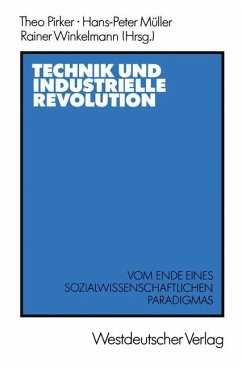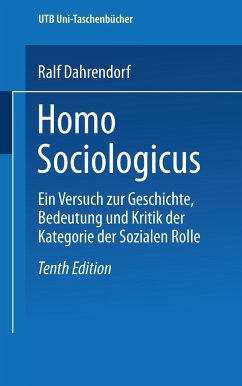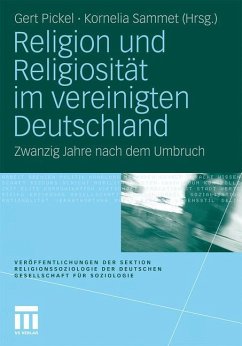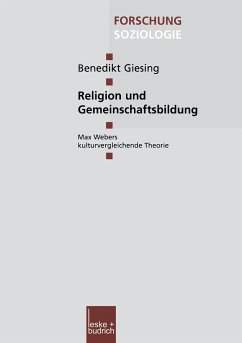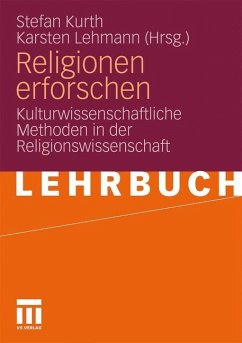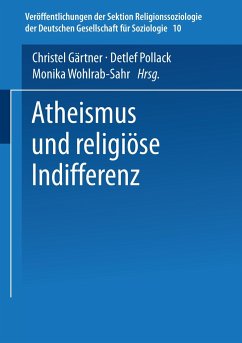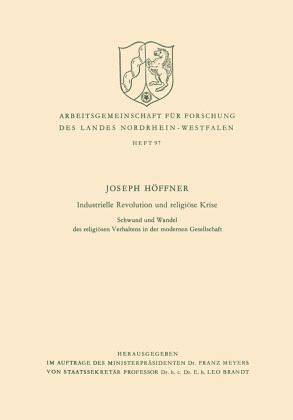
Industrielle Revolution und religiöse Krise
Schwund und Wandel des religiösen Verhaltens in der modernen Gesellschaft

PAYBACK Punkte
0 °P sammeln!
Modern civilization is characteristically industrial and technical. Spreading as it has from Europe throughout the world, it has brought continual religious crises in its wake. The present study is confined to an examination of the religious conduct of Catholics in the industrial society, and is based on recent religio-sociological studies carried out in Germany and France. The following state of affairs is shown to exist 1) In large cities and industrial districts the number of practising Catholics is well below the national average. 2) It seems probable that the domestic environment has a gr...
Modern civilization is characteristically industrial and technical. Spreading as it has from Europe throughout the world, it has brought continual religious crises in its wake. The present study is confined to an examination of the religious conduct of Catholics in the industrial society, and is based on recent religio-sociological studies carried out in Germany and France. The following state of affairs is shown to exist 1) In large cities and industrial districts the number of practising Catholics is well below the national average. 2) It seems probable that the domestic environment has a greater effect on religious conduct than the work environment. 3) Women and children generally maintain relatively regular church attendance, while in the case of men religious apathy becomes apparent soon after leaving school, and reaches a peak in the years of maturity. 4) Analysis of church attendances shows that the workers are particularly affected by the religious crises. 5) The effectiveness of education and training in maintaining religious interest was demonstrated. Any attempt to analyse the religious crisis must take into consideration the fact that the subjective factors, i. e. failure of Christians themselves and attacks on Christianity by antagonists, are not in themselves a sufficient explanation. A vital part is also played by the objective factors associated with the social environment of the industrial age; the environment is predominantly secular and tends towards a basic pluralism of out look.





